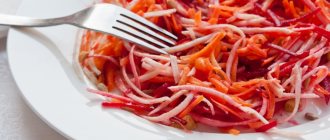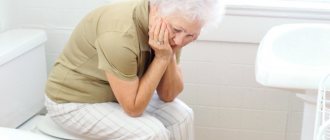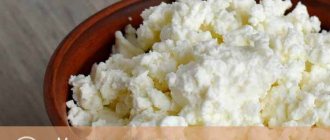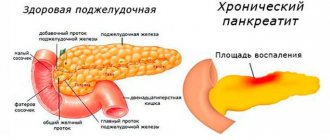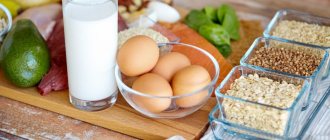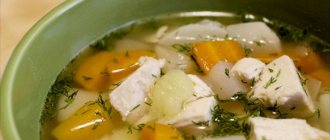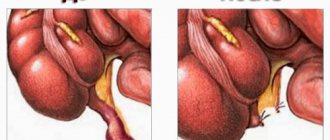Constipation is the retention of stool, temporary or permanent. Constipation can be a problem at any age, both infants and adults. This is a very common illness that many people are in no hurry to treat.
However, constipation can lead to serious consequences, which will be much more difficult to get rid of. Such a delicate problem as constipation is easiest to solve at the very beginning with the help of diet. Let's learn about proper nutrition for constipation.
Causes and consequences of constipation
Constipation occurs due to poor diet.
A huge number of people suffer from constipation, starting from infancy. Constipation is not considered a disease, but rather a symptom or a consequence of lifestyle.
However, chronic constipation and constant use of laxatives can lead to hemorrhoids, anal fissure, and also provoke other diseases that will not be easy to cure.
Proper nutrition for constipation, physical activity and drinking regimen can help cope with the problem. The causes of constipation have long been known:
- Poor nutrition. Currently, the habit of eating right remains only among a few. Cafes and pizzerias are opening at every step, where you can quickly and satisfyingly buy something. But such a diet leads to a lack of fiber, weakened intestinal motility and constipation.
- Sedentary work. The habit of sitting for 8 hours, and then getting home by car and taking the elevator leads to physical inactivity, weakening of muscles, stagnation of blood in the pelvic organs, constipation and often hemorrhoids.
- Pregnancy. During pregnancy, constipation almost always occurs due to the active production of hormones that relax muscles. Intestinal peristalsis weakens. If during pregnancy a woman limits herself to drinking due to edema, constipation may worsen and last for 2-3 days.
- Diseases of the gastrointestinal tract. Some diseases can lead to constipation, for example, diseases associated with stagnation of bile. Food is poorly digested and takes a long time to move through the intestines.
- Stress. Stress can cause both diarrhea and constipation. Constipation often occurs due to nervousness in an unfamiliar environment. For example, many children in a health camp cannot go to the toilet and endure it for a long time.
- Intestinal operations. Sometimes constipation is caused by decreased intestinal motility, but in this case, constipation may also be neurogenic due to fear of pain and blood during bowel movements.
- Depending on the cause, constipation can be divided into spastic and atonic. With atonic constipation, peristalsis is very weak, so stool moves slowly.
Spastic constipation is caused by a spasm of part of the intestines, as a result of which stool cannot move further.
Emergency remedies for constipation
Glycerin suppositories can help relieve constipation.
It is still advisable to treat constipation with proper nutrition and exercise, but if constipation has already lasted about 3-4 days, emergency remedies are required that will help quickly overcome constipation with minimal stress on the pelvic vessels.
Prolonged constipation causes toxic poisoning of the body and worsens the condition. However, laxatives are called emergency drugs because it is advisable to use them only in extreme cases, but not all the time. Emergency remedies:
- Glycerin suppositories. Suppositories quickly, effectively and gently help get rid of constipation. One suppository is inserted into the anus. After 5 minutes you can already go to the toilet. Glycerin quickly dissolves and softens stool, and also acts as a lubricant. Candles are suitable for anal fissure. They can also be used during pregnancy. However, constant use of suppositories leads to a weakening of peristalsis; the effect may be the opposite.
- Microlax. These are microenemas that allow you to quickly cope with constipation. They are recommended for pregnant women and infants. Unlike water, the drug contained in microenemas does not wash away beneficial microflora. It gently envelops the intestinal walls, softens stool, and promotes its movement.
- Phytolax. These are chewable lozenges based on herbal ingredients. Fitolax is recommended for use in a course, but it contains senna herb, which enhances intestinal motility. Intestinal emptying occurs 8-12 hours after taking the drug. The drug should not be taken by pregnant women, since hay grass causes cramps and can cause miscarriage.
- Cleansing enema with water. An old and proven way to combat constipation. For an enema, it is recommended to use water at room temperature. Colon cleansing occurs almost immediately and is quite painless. However, frequent enemas disrupt the intestinal microflora. If constipation is severe, an enema may only be partially effective.
Fruit selection criteria
Fresh ripe kiwis - and only such ones have a laxative effect - have a very weak aroma or no smell at all.
It is better to buy slightly unripe fruits, which will arrive within 2-4 days in a warm place. The fruit should be firm to the touch, with an evenly colored peel - no stains or damage. The fibers on the skin are somewhat harsh, but can be easily removed with your fingers. Ripeness is checked by pressing on the place of the stalk - if the juice does not protrude, the fruit is not overripe.
You should not eat kiwi that is starting to rot. If spores of pathogenic fungi enter the body, the balance of the intestinal flora will be disrupted. It is advisable to inspect all fruits.
If they are packed in a basket, it is advisable to inspect each one. The accumulation of condensation on the surface is a sign of incipient deterioration.
The most effective foods against constipation
Properly cooked meat and fish will significantly improve intestinal motility.
Diet is the most effective method of treating chronic constipation. It not only normalizes intestinal function, but also reduces the load on the liver and pancreas, and helps get rid of stomach problems.
As a rule, a diet for constipation includes a large amount of fiber and liquid, but requires limiting foods that are difficult to digest and cause increased gas formation. There is a list of foods whose regular consumption will significantly improve intestinal motility:
- Flour products. However, this does not mean that you need to indulge in fresh pastries, rolls and pies. Only day-old or dried bread made from wholemeal flour, as well as bran bread, are good for the intestines; you can buy dietary bran, amaranth and rye bread. Rye bread should not be eaten by those who suffer from increased gas formation. You can eat biscuits and crackers, but in limited quantities.
- Meat and fish. Meat does not harm the intestines if it is properly cooked. Lean beef, turkey, boiled chicken breast or in the form of steamed cutlets will not only not harm you, but will also help improve the functioning of the gastrointestinal tract.
- Fruits. For constipation, it is recommended to eat plums, apples, and kiwi. But it’s better to avoid pears and bananas. The fruit can be eaten as a fruit salad with low-fat yogurt. Daily consumption of fruit partially satisfies the body's need for fiber and vitamins.
- Dried fruits. Perhaps this is the best laxative, as well as an irreplaceable source of vitamins. Prunes and dried apricots have long been known for their laxative effect. You can cook compotes from them, eat them just like that, or add them to salads and porridges.
- Vegetables. Vegetables are rich in fiber, but it is advisable to eat them raw. It is better to reduce the consumption of boiled potatoes. There is a salad called “Broom”, which cleanses the intestines better than any laxative. It includes raw carrots, beets, cabbage and greens. This salad is seasoned with oil, but not salted.
Kiwi in cosmetology
Based on the pulp of the fruit, you can make moisturizing and nourishing masks for any skin type. The benefits of kiwi are especially evident when caring for sluggish, problematic or flaky skin.
Fruit acids soften the upper layer of the epidermis, eliminate minor defects, and brighten. When regularly applying pulp puree to the face:
- cleanses the skin of dead cells;
- regulates sebum secretion;
- cleanses and tightens pores;
- improves complexion;
- prevents acne;
- smoothes wrinkles;
- increases elasticity and saturates with antioxidants.
You can use kiwi for cosmetic purposes on its own, without mixing it with anything. Any variety is suitable for masks: regular, with green flesh, or Gold - rich yellow in color. The latter contain more ascorbic acid and vitamin E, which are necessary for metabolic processes in cells.
Prohibited foods for constipation
Eating store-bought sausages leads to disruption of intestinal motility.
In addition to the recommended products, there are also prohibited ones, which clog the intestines, make it difficult to empty them, negatively affect the functioning of the entire gastrointestinal tract, and are also the main cause of weight and skin problems.
- Sausage and frankfurters. As you know, store-bought sausages contain very little meat, but a lot of food additives, flavor enhancers, fat, etc. The habit of snacking on sausage leads to disruption of intestinal motility and increases the risk of cholesterol plaques.
- Chips and hamburgers. In medicine, such products are called “junk food” because they contain a large amount of harmful substances and practically zero useful ones. Such products only clog the body, leading to severe constipation, gastritis and ulcers.
- Sparkling water. Carbonation leads to increased gas formation, slows down the digestion of food, and leads to gastritis and constipation. In addition to the gas itself, it contains a lot of sugar and flavorings, which also harm the body.
- Mayonnaise and store-bought sauces. Mayonnaise and other sauces can be used occasionally as an exception, but you definitely shouldn’t pour mayonnaise on every dish every day. It contains a large number of calories and E-additives, which negatively affect the functioning of the gastrointestinal tract. You should not console yourself that low-calorie, light and “natural” store-bought mayonnaise made with quail eggs is not so harmful.
- Fresh pastries and white bread. Occasionally, you can eat fresh baked goods, but in small quantities. It affects weight and bowel function.
- Sweets. Sweets and chocolate lead to various problems; it is advisable to replace them with other delicious sweets such as natural curd desserts, homemade sweets made from dried fruits and nuts.
- Alcohol. Alcohol in any quantity is harmful, even in small doses. It complicates the work of the intestines, irritates the walls of the stomach, and slows down metabolic processes.
If you can’t completely avoid these foods, first reduce your consumption. As a rule, after several weeks of abstaining from harmful foods, the body gets used to it and no longer requires such food.

